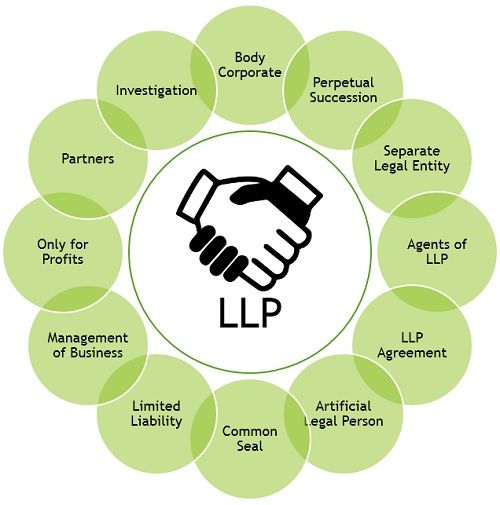 Meaning of LLP in law
Meaning of LLP in law

Meaning of LLP in law: In the realm of law, the acronym LLP denotes “Limited Liability Partnership.” An LLP represents a legal business structure that amalgamates aspects of a partnership and a corporation. It offers the advantage of limited liability protection to its partners. It is commonly used by professionals such as lawyers, accountants, and consultants.
The key characteristic of an LLP is that the partners are not personally liable for the debts and liabilities of the partnership beyond their agreed-upon investment or capital contribution. This limited liability protection helps safeguard the personal assets of the partners.
For more information visit this site: https://www.mca.gov.in

An LLP follow specific laws and regulations in each jurisdiction where it is recognized. These laws outline the rights, responsibilities, and obligations of the partners, as well as the procedures for formation, operation, and dissolution of the LLP.
FAQs
-
What does LLP stand for in legal terms?
- LLP stands for Limited Liability Partnership.
-
How does an LLP differ from a traditional partnership?
- An LLP provides limited liability to its partners, meaning they are not personally responsible for the debts and obligations of the partnership.
-
What are the key advantages of forming an LLP?
- Advantages include limited liability protection, flexible management structures, and pass-through taxation.
-
What are the requirements for forming an LLP?
- Requirements typically include filing specific documents with the state, such as a certificate of formation, and meeting certain eligibility criteria.
-
Are there any limitations on the types of businesses that can operate as an LLP?
- Some jurisdictions restrict certain professions (e.g., lawyers, accountants) from forming LLPs or may have specific regulations for them.
-
How is an LLP tax compare to a corporation?
- An LLP is generally tax as a pass-through entity, meaning profits and losses pass through to the partners’ personal tax returns, avoiding double taxation.
-
What are the ongoing compliance requirements for an LLP?
- LLPs often need to file annual reports, maintain certain records, and comply with other regulatory obligations depending on the jurisdiction.
-
Can a partner in an LLP be held personally liable for the partnership’s debts?
- Generally, partners in an LLP have limited personal liability, but they may still be held liable for their own negligence or misconduct.
-
What is the role of a designate partner in an LLP?
- A designated partner is responsible for the compliance and regulatory obligations of the LLP and typically represents the partnership legally.
-
How can partners exit an LLP or dissolve it?
- The process for exiting or dissolving an LLP typically involves following the procedures outlined in the partnership agreement and filing necessary documents with the state.
For further details access our website: https://vibrantfinserv.com